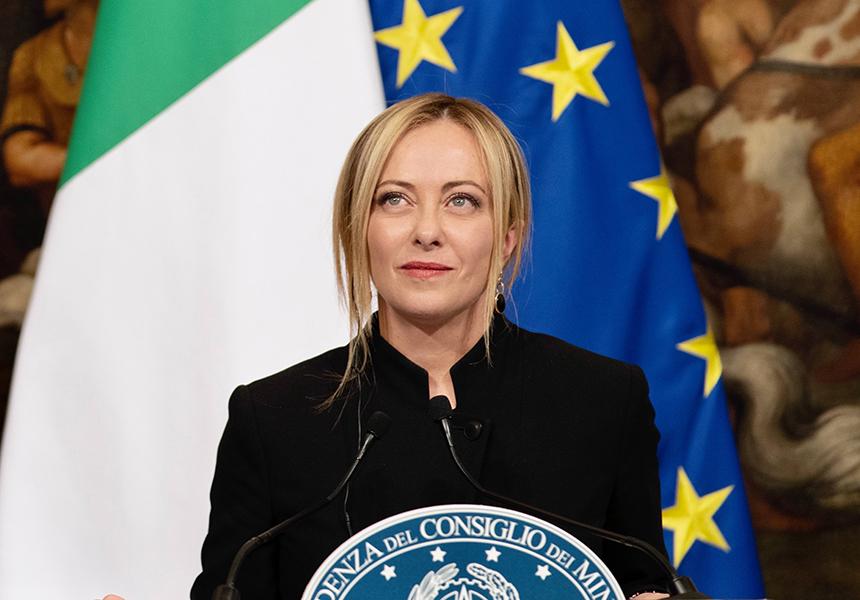Why the premiership needs to be improved

Premiership: opening a discussion would serve both the majority and the opposition. A possible agreement would free Meloni from the thorn in Salvini's side; the opposition may have a chance to contain the damage. Giuliano Cazzola's comment
Apart from the technical-legal findings which in a ''fundamental'' law are no small matter, the reform attributed to Minister Casellati gets worse the more someone gets their hands on it. And it is truly unacceptable that the government and the majority continue on this path, while the opposition remains on the Aventine.
Let's face it: the stability of the government has nothing to do with it, also because – once the law has been approved as shown by the latest agreements in the majority – the elected prime minister and his cabinet would enjoy a very compromised vitality, perpetually exposed to the risk of elections advance. The persistence on the so-called anti-reversal mechanisms could put the country in conditions of great difficulty, especially in moments like the current one in which anything could be expected. It is an absurd doctrine that leads to the exclusion of so-called technical governments supported by a majority of national unity. Are there perhaps negative experiences that should not be repeated? Without going back to the Dini government (which also took the place of a government – Berlusconi 1 – essentially elected by the people and fallen at the hands of its own majority), are there any criticisms to be addressed to the Monti and Draghi governments? Have we reached the point of introducing into the transitional and final rules that the reconstruction of a so-called technical government is prohibited – as was foreseen for the dissolved PNF?
It is precisely the flexibility that the founding fathers wanted to entrust to the initiative of the head of state which would be missing in the new system, in which the procedures for the formation of governments have no margins in their development, but are marked by fixed rules.
If the government led by the prime minister consecrated by the popular vote falls, a path opens up with predefined rules in times and ways and much more similar to a series of Pavlovian reflexes than to the management of a delicate political process. But the issue of anti-tipping rules is actually the crucial point of the whole operation. I imagine I was not the only one to realize that the first version of the Alberti Casellati bill contained an ad personas regulation. The use of the plural was intentional because it did not require much imagination to insert names and surnames alongside the institutional profiles that appeared in the regulations. Thus the figure of the prime minister ''anointed'' by the people's vote was that of Giorgia Meloni; while the successor in the foreseen cases, belonging to the same majority, evoked Matteo Salvini. As if, at the beginning of the legislature under the premiership regime, a relay agreement could be concluded within the majority.
In the new version this handover is subordinated to the orientation of the elected and fallen prime minister to be expressed within 7 days. Otherwise the only way that could allow another member of the majority (in our example Salvini) to cross the threshold of Palazzo Chigi as prime minister would be to kill his predecessor, in agreement with the head of state who would then entrust him with the task of forming the government. This explains why the League's opinions on the new text are still awaited.
At this point it is legitimate to ask whether the opposition, in particular the Democratic Party, intend to wait and see what the majority will manage to do, continuing to wage a head-on clash with overexcited tones and unsustainable arguments.
The Dems would not be credible if they adopted the Benigni line of the ''most beautiful Constitution in the world'' because they were the first to question it and judge the institutional structure referred to in the Second Part of the 1948 Charter to be inadequate for the new times. Do they think they can withstand a battle against a non-existent authoritarianism (no to a single man/woman in command thanks to the premiership) and against the division of an already divided country (no to differentiated autonomy)? The Democratic Party hides too many skeletons of attempted and proposed constitutional reforms in its closets; he has had too many affairs with the sorcerers of constitutional law to be able to claim today to trace the purity of the founding fathers.
This is why – as Giuliano Urbani underlined in an interview in Corriere della Sera – opening a discussion would serve both the majority and the opposition. A possible agreement would free Meloni from the thorn in Salvini's side; the opposition may have a chance to contain the damage. Otherwise they would only have one last trench left: the confirmatory referendum. But at this point it would look very bad.
This is a machine translation from Italian language of a post published on Start Magazine at the URL https://www.startmag.it/mondo/perche-il-premierato-deve-essere-migliorato/ on Wed, 07 Feb 2024 06:42:19 +0000.
